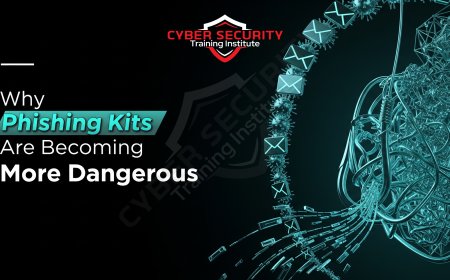What If Hackers Had Ethics Boards? Imagining a Parallel Cyber World
In a world where cybercrime costs billions annually and data breaches expose millions of personal records, the idea of hackers operating under a code of ethics seems like a fantasy. But what if hackers had ethics boards to guide their actions? Imagine a parallel cyber world where hacking is not just about breaking into systems but doing so with rules, accountability, and a sense of responsibility. This blog explores this intriguing concept, diving into how such a system could work, its potential benefits, challenges, and what it might mean for the future of cybersecurity. Hacking often conjures images of shadowy figures in hoodies, exploiting vulnerabilities for personal gain. Yet, not all hackers are malicious—some, known as "white hat" hackers, use their skills to improve security. By imagining a world where even the most rogue hackers answer to an ethics board, we can explore a new perspective on cybersecurity, innovation, and the balance between freedom and responsibility.

Table of Contents
- What Are Ethics Boards?
- The Current State of Hacking
- Imagining a Hacker Ethics Board
- Potential Benefits of Ethical Hacking Governance
- Challenges and Criticisms
- Case Study: A Hypothetical Scenario
- Comparison of Ethical and Unethical Hacking
- Conclusion
- Frequently Asked Questions
What Are Ethics Boards?
Ethics boards are groups of experts who oversee and guide decisions to ensure they align with moral and professional standards. In fields like medicine, law, or corporate governance, ethics boards set rules to prevent harm and promote fairness. For example, a medical ethics board might approve or deny experimental treatments based on patient safety and informed consent.
In the context of hacking, an ethics board would be a group of cybersecurity experts, legal advisors, and perhaps even former hackers who establish guidelines for hacking activities. These guidelines could define what’s acceptable—like testing systems with permission—and what’s not, like stealing data or causing harm. The board would hold hackers accountable, ensuring their actions serve a greater good or at least minimize damage.
The Current State of Hacking
Hacking today is a mixed bag. There are three main types of hackers:
- White Hat Hackers: These are the "good guys" who hack with permission to find and fix security flaws. Companies hire them to test systems.
- Black Hat Hackers: These are the "bad guys" who exploit systems for profit, revenge, or chaos, often breaking laws.
- Gray Hat Hackers: These fall in between, hacking without permission but not always with malicious intent, like exposing flaws to force companies to act.
The lack of universal rules means black hat and gray hat hackers operate in a legal and ethical gray zone. Cybercrime costs are staggering—reports estimate global losses at $8 trillion in 2023 alone. Data breaches, ransomware, and identity theft are rampant, and the absence of oversight fuels distrust in the digital world.
Imagining a Hacker Ethics Board
Picture a world where hackers, even those operating outside traditional systems, answer to an ethics board. This board could:
- Define clear rules for hacking, like requiring consent or prohibiting harm.
- Review hacking projects before they start, ensuring they meet ethical standards.
- Certify hackers who follow the rules, giving them legitimacy.
- Investigate violations and impose penalties, like revoking certifications or reporting illegal activity.
Such a board could operate globally, perhaps under a neutral organization like the United Nations or a tech consortium. It might include diverse members—cybersecurity experts, ethicists, former hackers, and even public representatives—to ensure balanced decision-making.
In this parallel world, hackers might submit proposals for their projects. For example, a gray hat hacker wanting to expose a flaw in a government database would need board approval, proving the hack serves a public interest and won’t cause undue harm. The board could mandate safeguards, like anonymizing data or notifying authorities post-hack.
Potential Benefits of Ethical Hacking Governance
An ethics board could transform the cyber world in several ways:
- Improved Security: Ethical oversight could encourage more hackers to work within legal boundaries, helping companies and governments fix vulnerabilities before black hat hackers exploit them.
- Public Trust: Knowing hackers are held accountable could make people feel safer online, boosting confidence in digital services.
- Innovation: Ethical hackers could push the boundaries of technology, finding creative solutions to cybersecurity challenges without fear of legal repercussions.
- Reduced Crime: Clear rules and consequences might deter black hat hackers, as the risk of being caught or ostracized by the hacking community increases.
Imagine a world where companies compete to hire certified ethical hackers, knowing their work is vetted. This could create a new job market, professionalizing hacking and reducing its stigma.
Challenges and Criticisms
Creating a hacker ethics board isn’t without hurdles:
- Enforcement: How do you regulate a global, often anonymous community? Hackers operate across borders, and enforcing rules universally is nearly impossible.
- Freedom vs. Control: Many hackers value their independence. An ethics board could be seen as stifling creativity or imposing bureaucracy on a free-spirited community.
- Corruption Risk: Any powerful board could be corrupted. Hackers or corporations might bribe members to approve unethical projects.
- Defining Ethics: What’s ethical to one person might not be to another. A board would need to navigate cultural and legal differences to set universal standards.
Critics might argue that ethical oversight would push black hat hackers further underground, making them harder to track. Others might say it’s naive to think rogue hackers would ever submit to a board’s authority.
Case Study: A Hypothetical Scenario
Let’s imagine a hacker named Alex, a gray hat who discovers a flaw in a hospital’s patient database. Without an ethics board, Alex might hack the system, expose the flaw publicly, and embarrass the hospital, potentially disrupting patient care. With an ethics board, Alex submits a proposal outlining the hack, its purpose (to improve security), and safeguards (like not accessing patient data). The board approves, Alex conducts the hack, and the hospital fixes the flaw quietly, avoiding public panic.
This scenario shows how an ethics board could channel gray hat energy into positive outcomes, protecting both the public and the hacker from legal fallout.
Comparison of Ethical and Unethical Hacking
| Aspect | Ethical Hacking (With Ethics Board) | Unethical Hacking (No Oversight) |
|---|---|---|
| Permission | Requires explicit consent from system owners | No consent; targets any system |
| Purpose | Improve security, protect users | Personal gain, harm, or chaos |
| Accountability | Answerable to ethics board | No accountability; anonymous |
| Impact | Fixes vulnerabilities, builds trust | Causes breaches, financial loss |
| Legal Status | Legal with board approval | Often illegal |
Conclusion
The idea of hackers having ethics boards is a bold vision for a safer, more responsible cyber world. By setting rules, ensuring accountability, and encouraging ethical behavior, such boards could bridge the gap between the hacking community and society’s need for security. While challenges like enforcement and defining ethics remain, the potential benefits—stronger cybersecurity, public trust, and innovation—are worth exploring. This parallel world might not eliminate cybercrime, but it could redefine hacking as a force for good, turning rogues into guardians of the digital age.
Frequently Asked Questions
What is an ethics board for hackers?
An ethics board for hackers would be a group that sets and enforces rules to ensure hacking is done responsibly, like requiring consent or prohibiting harm.
Why do hackers need an ethics board?
An ethics board could reduce cybercrime, improve security, and make hacking a legitimate profession by holding hackers accountable.
Who would be on a hacker ethics board?
It could include cybersecurity experts, ethicists, legal advisors, former hackers, and public representatives for balance.
Can all hackers be regulated?
Not easily—many hackers are anonymous or operate across borders, making enforcement a challenge.
What’s the difference between white hat and black hat hackers?
White hat hackers work legally to improve security; black hat hackers break systems for personal gain or harm.
What are gray hat hackers?
Gray hat hackers hack without permission but often to expose flaws, not to cause harm.
How would an ethics board enforce rules?
It could certify compliant hackers, revoke certifications for violations, or report illegal activity to authorities.
Would an ethics board stop cybercrime?
It might reduce it by deterring unethical hackers and encouraging legal alternatives, but it wouldn’t eliminate it.
Could an ethics board be corrupted?
Yes, like any organization, it could face corruption risks, requiring strong oversight to stay trustworthy.
How would hackers benefit from an ethics board?
They could gain legitimacy, avoid legal trouble, and access job opportunities in ethical hacking.
Would companies trust ethical hackers?
With board certification, companies might be more likely to hire hackers to test and improve their systems.
Could an ethics board stifle innovation?
Possibly, if rules are too strict, but a balanced board could encourage creative, responsible hacking.
What happens if a hacker violates the board’s rules?
They could lose certification, face penalties, or be reported to law enforcement, depending on the violation.
Would black hat hackers join an ethics board?
Unlikely, as many prefer anonymity and operate outside legal systems, but incentives could sway some.
How would an ethics board define “ethical”?
It would need to balance cultural and legal differences, possibly focusing on consent, harm prevention, and public good.
Could an ethics board operate globally?
Yes, under a neutral body like a tech consortium, but coordinating across countries would be complex.
What’s an example of ethical hacking?
A hacker testing a company’s website with permission to find and fix security flaws is ethical hacking.
Would an ethics board make the internet safer?
Potentially, by encouraging ethical hacking and reducing harmful exploits, though some risks would remain.
How could the public benefit?
Stronger cybersecurity, fewer data breaches, and greater trust in digital services would benefit everyone.
Is this idea realistic?
It’s ambitious and faces challenges like enforcement and hacker resistance, but it’s a compelling vision for the future.
What's Your Reaction?
 Like
0
Like
0
 Dislike
0
Dislike
0
 Love
0
Love
0
 Funny
0
Funny
0
 Angry
0
Angry
0
 Sad
0
Sad
0
 Wow
0
Wow
0















